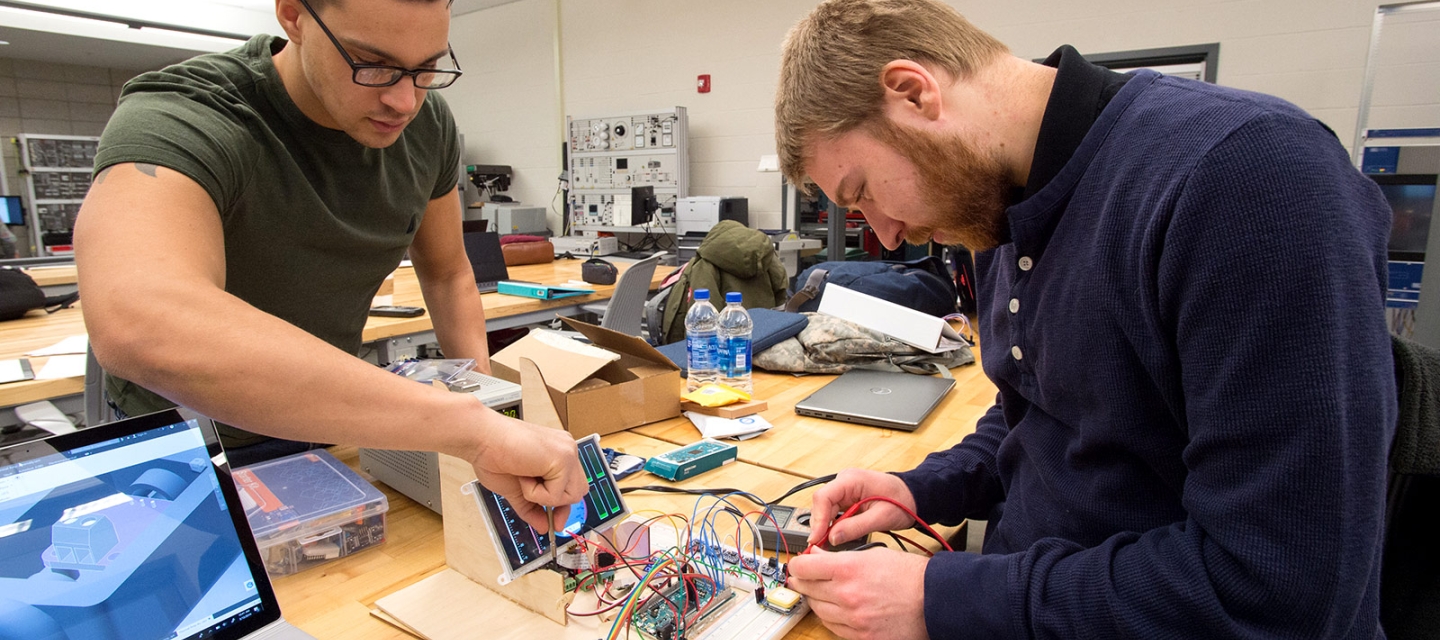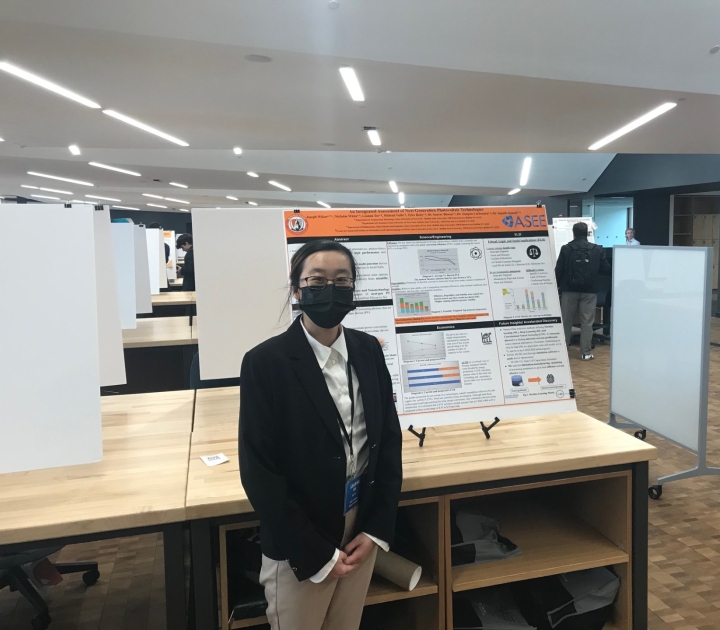
About Electrical Engineering Technology, Electronics
The Electrical Engineering Technology, Electronics program prepares students to design, test, and fabricate solid-state circuits and systems (both digital and analog), microwave systems, and control systems. Electrical Engineering Technology, Electronics graduates work in electronic and digital circuit design, testing, and manufacturing; microwave wireless communications and telecommunications; and control systems and robotics.
Degree Information
Our graduates are:
- Engineers that understand the key facets of problem solving in a “real world” environment
- Engineers familiar with the capabilities AND limitations of state-of-the-art technology
- Engineers that can identify and implement practical solutions using available technology
Electrical engineering technology is a stable, reliable major with high employment and many growing career options. EET training is so extensive that graduates are generally able to land jobs in a wide variety of industries, including:
- Aerospace/Aircraft
- Automotive
- Broadcast Engineering
- Construction
- Consumer Goods
- Entertainment Electronics
- Factory Manufacturing
- GPS Engineering
- Information Technology
- Manufacturing
- Nuclear Power
- Power Generation
- Robotics
- Skyscraper Construction
- Telecommunications
- Toy Design
- Transport
- Utilities Management
A key facet of engineering technology programs is laboratory explorations. Essentially all technical studies are accompanied by lab exercises in which students learn to operate state-of-the-art scientific and technical equipment and to appreciate its capabilities and limitations. In comparison, engineering programs put much less emphasis on laboratory work. An emphasis is on practice-based learning via hands-on laboratories using state-of-the-art equipment:
- Examining and solving “real-world” problems in the process of learning engineering
- Learning from faculty who are actively engaged with local, cutting-edge technology industries
- Internships opportunities with local industry via faculty connections
IEEE Student Chapter: With more than 400,000 members in more than 160 countries, IEEE is the world's largest technical professional society. Through its global membership, IEEE is a leading authority on areas ranging from aerospace systems, computers and telecommunications to biomedical engineering, electric power, consumer electronics, and many other technical areas. IEEE also serves student members in colleges and universities around the world, advocates for the profession and helps to introduce technology careers to young people worldwide.
National Association of Black Engineers (NSBE): With more than 31,000 members and 250 active collegiate chapters, (including Buffalo State), the NSBE offers academic support, professional development, leadership training, resume building, and gateways to career opportunities.
Epsilon Pi Tau: With over 90,000 members, the National Honor Society for technology students recognizes academic excellence of students. Prospective members must meet Epsilon Pi Tau professional and leadership performance criteria.
Math Club: Topics learned in the classroom are applied to the real world with the aim of introducing students to opportunities for individual growth in their knowledge of mathematics and mathematics education. Events include games, current events in math, in-depth talks from professors, guest speakers, and students.
SAE Mini Baja Competition: The SAE Mini Baja Competition is one of the most unique and exciting extracurricular activities open to EET majors. Designing, building, and racing off-road vehicles that can withstand the harshest elements and roughest terrain, is the goal. As a graduation requirement, EET students on our Mini Baja team use the competition as their senior project.
Light a Spark
Electronics. Smart grids. Circuits. Amplifiers. They’re fascinating. You’ve always been amazed by the power of electricity and magnetism and the ways humans can harness them to make things work. Sound like you? Electrical Engineering Technology might be the perfect fit for you.
"Classes required project work and applied theory to real-world applications...They served as the catalyst to formulate my direction on the manufacturing path."
The New York Power Authority nominated Buffalo State to become an affiliate university with GridEd, a collaborative educational initiative seeking to develop and train the next generation of power engineers. This affiliation qualified the college for the EPRI award.


